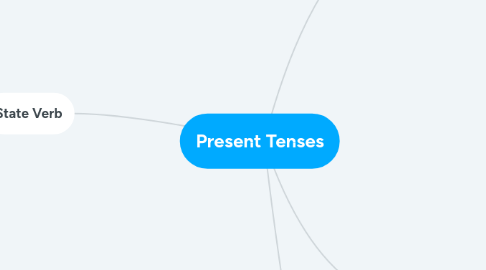
1. Present Simple
1.1. Syntax:
1.1.1. (+) Verb + e (s)
1.1.2. (-) Do/does + not + Verb
1.1.3. (?) Do/does + S + Verb
1.2. Uses:
1.2.1. to talk about regular habits or repeated actions
1.2.2. to talk about permanent situations
1.2.3. to talk about facts or generally accepted truths
1.2.4. to give instructions or directions
1.2.5. to tell stories and talk about films, books and plays
2. Present Continuous
2.1. Syntax:
2.1.1. (+) Am/is/are + V + -ing
2.1.2. (-) Am/is/are + not + V + -ing
2.1.3. (?) Am/is/are + S + V + -ing
2.2. Uses:
2.2.1. to talk about temporary situations
2.2.2. to talk about actions happening at the moment of speaking
2.2.3. to talk about trends or changing situations
2.2.4. to talk about things that happen more often than expected, often to show envy or to criticise with words like always, constantly, continually and forever
3. State Verb
3.1. The present continuous is not normally used with state verbs because the meaning of the verb itself is a general truth rather than something temporary. These verbs describe thoughts, feelings, senses, possession and description.
3.2. For example:
3.2.1. Thoughts:
3.2.1.1. agree
3.2.1.2. assume
3.2.1.3. believe
3.2.1.4. disagree
3.2.1.5. forget
3.2.1.6. hope
3.2.1.7. know
3.2.1.8. regret
3.2.1.9. remember
3.2.1.10. suppose
3.2.1.11. think
3.2.1.12. understand
3.2.2. Feelings
3.2.2.1. adore
3.2.2.2. despise
3.2.2.3. dislike
3.2.2.4. enjoy
3.2.2.5. feel
3.2.2.6. hate
3.2.2.7. like
3.2.2.8. love
3.2.2.9. mind
3.2.2.10. prefer
3.2.2.11. want
3.2.3. Senses
3.2.3.1. feel
3.2.3.2. hear
3.2.3.3. see
3.2.3.4. smell
3.2.3.5. taste
3.2.4. Possession
3.2.4.1. Have
3.2.4.2. belong
3.2.4.3. own
3.2.5. Description
3.2.5.1. appear
3.2.5.2. contain
3.2.5.3. look
3.2.5.4. look like
3.2.5.5. mean
3.2.5.6. resemble
3.2.5.7. seem
3.2.5.8. smell
3.2.5.9. sound
3.2.5.10. taste
3.2.5.11. weigh
3.3. Notes:
3.3.1. Some state verbs can be used in the continuous form when the meaning is temporary.
3.3.2. For example:
3.3.2.1. 1. What are you thinking about? 2. I think I should tell her exactly what happened.
3.3.2.2. 1. I'm tasting the sauce to see if it needs any more salt 2. The sauce tastes delicious
3.3.2.3. 1. She's having a great time. (is having = is experiencing, not possession) 2. Students don't generally have much money. (have = possession
4. New Words
4.1. temporary
4.2. permanent
4.3. criticise
4.4. constantly
4.4.1. it means: all the time or often
4.5. continually
4.5.1. it means: in a way that happens repeatedly
4.6. forever
4.6.1. very often
